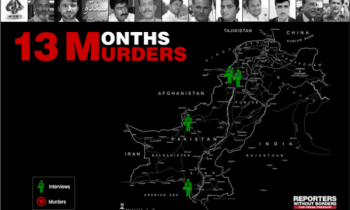Australian journalist Ben Hills has refused to apologise after finding himself at the centre of an international diplomatic row with Japan over a book he wrote about Crown Princess Masako, according to news reports.
On Monday, diplomats from the Japanese Embassy in Canberra delivered a letter to Hills and his publisher Random House Australia, protesting "defamatory" references in his latest book, Princess Masako: Prisoner of the Chrysanthemum Throne. "The minister counsellor ... solemnly sat down and read us the most bizarre and extraordinary letter ... I have ever seen in my life," Hills told ABC Radio.
"(They said) the book contains disrespectful descriptions, distortion of facts and judgmental assertions ... pertaining to the birth of Her Imperial Highness Princess Aiko and the physical conditions of Her Imperial Highness the Crown Princess Masako. "It (the letter) goes on and on and is really quite odd."
An Australian embassy spokesman in Tokyo said Japan's complaint was "a private matter between the Japanese government and the author and publisher." "The Australian government strongly respects the dignity of the Japanese imperial family," he said, according to an Agence France-Presse (AFP) report.

In the book, Hills has claimed that Princess Masako suffers depression and alleged that she underwent in-vitro fertilisation (IVF) to conceive her now five-year-old daughter, Princess Aiko. Hills says the IVF claim was widely reported in the international press but ignored by Japanese media.
Japanese journalists traditionally report the imperial family in a reverential way. Honorifics and especially polite terms are used whenever writing about them. An equivalent to the recent British film, The Queen, would be unthinkable. Nor are there royal impersonators, London’s Telegraph commented.
The book was released in Australia four months ago, followed by a launch in the US. A Japanese-language edition is due to be published by Kodansha Ltd in early March, and is expected to be a bestseller.
The 43-year-old Masako is a Harvard-educated former diplomat who many had hoped would help modernise Japan’s staid imperial family when she married Crown Prince Naruhito in 1993.
While pressure to bear an heir to Japan’s males-only throne was widely seen as one of the causes of Masako’s illness, the stress may have eased when her royal sister-in-law gave birth last September to Prince Hisahito, the first male heir born to the imperial family in more than 40 years, a Reuters report said.
“There is nothing to apologise for. In fact, there is only one person in this saga that deserves an apology and that’s Princess Masako,” Hills told Kyodo news agency. “I think the Kunaicho (Imperial Household Agency) should apologise to her for bullying her into a state of nervous breakdown.” Hills has described his book as “the story of a romance gone wrong, an Oriental Charles and Diana story”.









